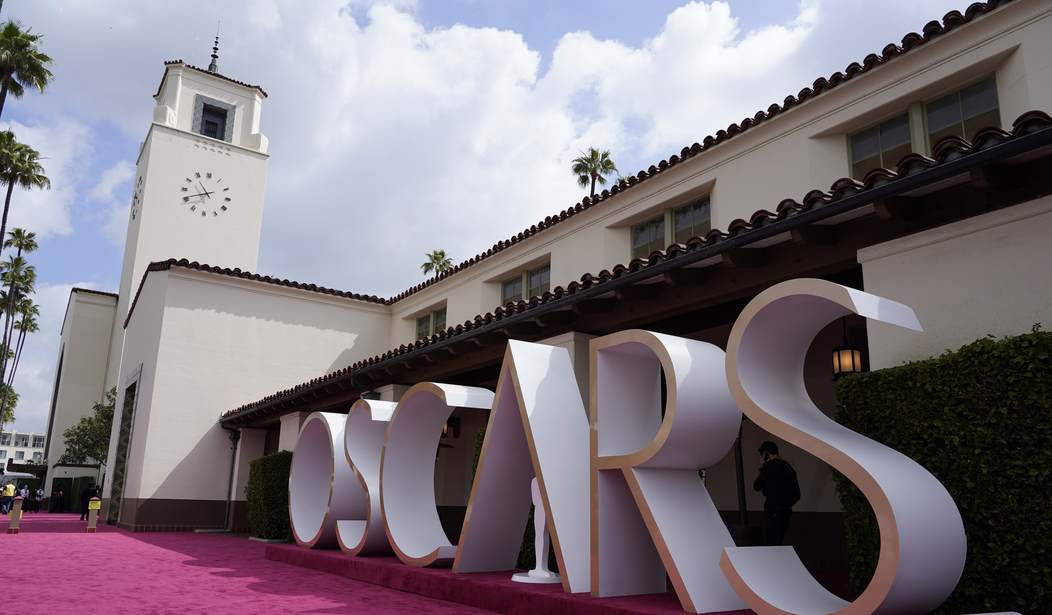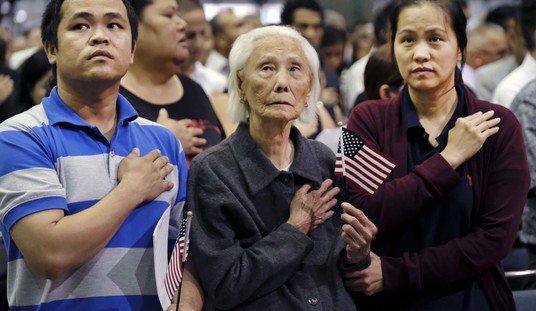Being woke means always taking the next step into further absurdity, and the Oscars have done just that. The once-storied awards show has seen its viewership collapse over the last several years as it has doggedly pursued a regime of “social justice” and promotion of “diversity.”
The far-left simply doesn’t have the capacity to learn any lessons, though, and the new qualifying rules for “Best Picture” have to be seen to be believed. According to the Oscars’ website, which published the new guidelines, in order for a movie to qualify, it must meet strict diversity standards that would have excluded many of the best films in history.
More specifically, there are four different categorical standards laid out that demand diversity both on screen and on set. In order for a movie to be up for Best Picture, it must comply with at least two of the four standards, all of which were laid out recently on the Oscars’ website.
For example, here’s the one dealing with leads and “significant supporting actors.”
STANDARD A: ON-SCREEN REPRESENTATION, THEMES AND NARRATIVES
To achieve Standard A, the film must meet ONE of the following criteria:A1. Lead or significant supporting actors
At least one of the lead actors or significant supporting actors is from an underrepresented racial or ethnic group.
• Asian
• Hispanic/Latinx
• Black/African American
• Indigenous/Native American/Alaskan Native
• Middle Eastern/North African
• Native Hawaiian or other Pacific Islander
• Other underrepresented race or ethnicityA2. General ensemble cast
At least 30% of all actors in secondary and more minor roles are from at least two of the following underrepresented groups:
• Women
• Racial or ethnic group
• LGBTQ+
• People with cognitive or physical disabilities, or who are deaf or hard of hearingA3. Main storyline/subject matter
The main storyline(s), theme or narrative of the film is centered on an underrepresented group(s).
• Women
• Racial or ethnic group
• LGBTQ+
• People with cognitive or physical disabilities, or who are deaf or hard of hearing
My first thought is to ask how women and LGBT individuals are “underrepresented” in Hollywood. After all, the word representation has an actual definition, and if a group is being cast at or beyond their portion of the population, isn’t that fair representation?
Take Disney as an illustration regarding women. One of the chief gripes of fans of their various properties has been that the company shoehorns “strong female characters” into leading roles where they don’t fit. According to insider reports, they even managed to upstage Harrison Ford in the new Indiana Jones movie by having a “strong female character” dominate the screen as his co-lead. So where exactly is this underrepresentation of women happening?
As to LGBT representation, Hollywood has been forcing LGBT characters into television shows and films at far higher rates than they exist in the general population for decades. Again, where’s the underrepresentation? I don’t have the exact statistics in front of me, but I’m guessing you could make a similar case for “racial and ethnic groups” as well given how obsessed Hollywood is with ensuring every movie looks like some kind of We Are the World remake.
The point isn’t that having a diverse cast is bad. It can be quite good when the source material calls for it. But to exclude objectively great pieces of art because they don’t meet ridiculously woke diversity standards is antithetical to the entire idea of filmmaking. The point is to produce something good that connects with audiences, not check off racial and ethnic quotas.
Think about how many great movies will be excluded under the Oscars’ latest pandering attempt. Two of the best movies of 2022 were All’s Quiet on the Western Front and Top Gun: Maverick. I’m fairly certain the former would not have qualified under these new standards. I’m also skeptical the second one would either given the complicated mess of “representation” demanded by the Oscars now. How does a movie that focuses on a single white character, such as Cast Away, qualify? What about a historical set piece like Christopher Nolan’s Oppenheimer, which releases in July?
I could keep going with examples, but the problem is obvious. The Oscars’ new diversity standards are blatantly discriminatory tripe meant to force studios into ignoring certain stories. That those stories are often the ones that audiences want appears to be irrelevant to our woke overlords.














Join the conversation as a VIP Member